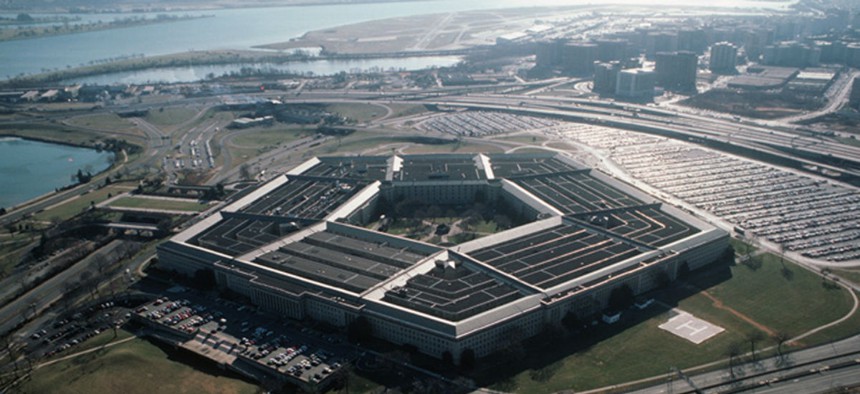
Defense Department file photo
Court Again Rules the Pentagon’s Sequestration Furloughs Were Fair
Judges deny argument that some employees were not impacted by budget cuts.
A federal appeals court has upheld that the Defense Department acted lawfully in furloughing all employees when sequestration hit in 2013, even those employees whose salaries came from non-appropriated funds.
In two cases brought by the National Federation of Federal Employees lumped together by the U.S. Court of Appeals for the Federal Circuit, Defense employees working at Army posts in Pennsylvania and New York argued the Pentagon acted unlawfully when extending forced, unpaid days off to working capital fund employees. Budget cuts that took effect when sequestration went into place should not have impacted self-sustained Defense entities, NFFE argued.
Per its collective bargaining agreement, the union employees initially brought their grievances to separate arbitrators for each location. With one exception, the arbitrators in both cases said the Pentagon acted in accordance with the law. Defense only violated the law with its furloughs of “security employees” at the Watervilet Arsenal in New York, the arbitrator in that case ruled. NFFE appealed both adverse rulings to the appeals court.
Then-Defense Secretary Chuck Hagel said in a 2013 memorandum that furloughs would be imposed on every military department and agency, including those in working capital funds. Employees at both locations in question were paid from a WCF, revolving funds that collect fees for their services from customers within the department. NFFE argued WCF entities did not face a funding shortfall, and therefore furloughing their employees “did not promote the efficiency of the service.”
The arbitrators said, however, examining the financial situation of the entire department, and not the employees’ specific posts, was the proper measure by which to make furlough decisions. The appeals court agreed, writing in its decision, “We conclude that, in both appeals, the arbitrators correctly focused on DoD as the relevant agency rather than on the local WCF entity. We also conclude that, in both appeals, substantial evidence supports the arbitrators’ findings that the efficiency of the service standard was met.”
The furloughs, the court wrote, were “the result of financial restraints imposed on the entire agency,” not just certain subcomponents.
Drew Halunen, NFFE's legislative director, disagreed with that assessment, saying the court "upheld the Department of Defense's decision to be inefficient."
"What you see with the courts upholding this decision is a policy that the MSPB and courts won’t interfere even when political wrangling between the executive and legislative branches lead to wasteful human capital management practices in the federal government," Halunen said.
Earlier this month, the appeals court also ruled against Navy employees who argued they were unjustly furloughed. In that case, which also involved WCF workers, the court found the Navy issued furloughs in a “fair and just manner” and that the Navy posts could have expected less business from their customers’ sequestration-induced belt tightening.
The Merit Systems Protection Board has been tasked with processing 32,400 initial furlough appeals filed in fiscal 2013; 90 percent of the furlough cases have been completed, the agency has said.







